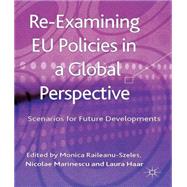This book presents new research into the development of key European policies since the global financial crisis and advances new insights into the process of European integration by examining the major problems and difficulties that the European Union has had to face in new the global economy. Based on the newest statistical data in the field, this collection analyzes the critical turning points in the functioning of European social policies in the context of the challenges presented by the global economy.
Each chapter examines a key European policy from welfare to trade and agriculture, as well as highlighting the specific issues, it charts the progress made on the reforming paths as well as presenting thought-provoking scenarios for future development that will be invaluable for researchers and policy makers alike.
There are several common issues explored in each European policy: the historical perspective across the development of that policy, the specific mechanisms and instruments of functionality, cross-country comparative aspects with a focus on the New Member States, the new demographic, economic and social dynamics in the global economy and their effects on the European policies, and the future development scenarios derived from the necessity to adjust the policies to the new economic and social context.
Each chapter examines a key European policy from welfare to trade and agriculture, as well as highlighting the specific issues, it charts the progress made on the reforming paths as well as presenting thought-provoking scenarios for future development that will be invaluable for researchers and policy makers alike.
There are several common issues explored in each European policy: the historical perspective across the development of that policy, the specific mechanisms and instruments of functionality, cross-country comparative aspects with a focus on the New Member States, the new demographic, economic and social dynamics in the global economy and their effects on the European policies, and the future development scenarios derived from the necessity to adjust the policies to the new economic and social context.








